It’s a situation all parents dread: when your child comes home from school and tells you they’re being bullied. In light of Anti-Bullying Awareness Week, today we’ve got a guest post from one of our lovely readers, Sarah*. She’s sharing the heart-breaking ordeal her daughter Rosie* has been through.
My little girl Rosie started school in September 2016. We’d made the decision to keep her in private nursery when she turned three as it suited our circumstances at the time rather than send her to the local school nursery. Rosie has always been a sociable and happy girl, so I had no concerns about her transition to “big school” the following year just after she’d turned four.
I was so excited in those initial days to hear all about her new friends and what she’d gotten up to (although I was lucky if I received a recollection of what she’d eaten for snack).
After the first half term, I’d noticed that she’d become increasingly withdrawn and very shy. At the time I guess I put it down to adjusting to a big three form entry school, which was feasibly overwhelming for her.
A few weeks later, I was braiding her hair after bath time and I noticed that a large chunk was missing. I questioned her about it and she very matter of factly told me that Scarlett* had cut it off. Although shocked, I tried to stay calm as I’d imagined it may have been a game of hairdressers taken too literally. To my amazement, she told me that Scarlett had cut it off with a butter knife in the lunch queue. I was livid – how long must it have taken to cut through her hair with a blunt knife, and where was the lunchtime supervision? The thing I think that upset me the most was why on earth had Rosie let this other child do this to her?
I had a meeting with Rosie’s teacher the next day and told her how distressed we all were. The child concerned admitted what had happened, was told off, and that was that.
Unfortunately, things didn’t stop there. Over the school year the same child, (who Rosie called her “best friend”) continued to feature in a string of horrible events. As the frequency of these verbal and physical situations increased I continued to have regular dialogue with Rosie’s teacher. The school took it fairly seriously but asked me not to refer to it as “bullying” – they preferred “bossiness” – the child in question was very assertive – and this was they told me, just her asserting herself with Rosie. Their advice was to encourage Rosie to stand up for herself more, to challenge, push back and say ‘no’.
Following this advice we practiced role play at home, where I was the bossy one and she would challenge me (with much persuasion and encouragement).
At school they actively split the children up when possible and paired Scarlett with other very assertive peers to see how she reacted to that dynamic.
Things didn’t drastically improve and instead of classroom scenarios, the bullying had moved to lunchtimes where there was less supervision from class teachers and the dinner ladies weren’t aware of the back story. Rosie would come home bruised from being kicked and hit under the table. For months and months she refused to tell me what she’d eaten at lunchtime (it eventually turned out it was because Scarlett wouldn’t ever let Rosie choose her own lunch, instead forcing her own selections). There were lots of threats around not allowing Rosie to play with others in the class, and blackmail involving turning other girls against her if she didn’t go along with what Scarlett wanted to do.
The most frustrating part of all of this for me was that Rosie wanted to continue to play with Scarlett – she thought that this was the norm in friendship. Her teachers told me that quite often Rosie would ‘follow Scarlett around like a little puppy’ and that they played together beautifully.
My husband and I had numerous conversations with Rosie about expectations of friendship and explained that friends aren’t mean to one another. We bought the book ‘The Bully and the Shrimp’ to read at bedtime. But things never really resolved. I asked school whether we could move Rosie to another one of the classes in her year group, but I was told that the numbers wouldn’t balance. Soon it was the end of Reception and her first year at school and I was really sad that her first year of school had been so challenging, but I was delighted that we now had a six week break over the summer to hopefully break the cycle.
We arranged loads of play dates with others in her class and she had a wonderful time. Rosie went back to school in September excited and looking forward to getting to know her new teacher. Her confidence was back and both my husband and I were so happy to see her embracing the new school year. What a relief.
And it was, until a few weeks in. And the same patterns crept back. This time I was a lot less accepting. After hearing from Rosie’s teacher that she was shoved over in the playground by Scarlett, I wrote a very firmly worded letter and asked for details of the behavioural procedures. The letter was taken seriously and Scarlett was sent to the headteacher and her parents were informed. Unfortunately, there was another physical incident a few days later, and the same happened again with Scarlett going to the head and her parents being called into school. The school seem to be taking me more seriously this time and have advised I keep a log of anything, encouraged an ongoing open dialogue with them, and senior staff have confirmed that they have briefed the play and lunch time supervision staff.
We’ve looked into moving schools, but having spoken to the Local Education Authority I’m told that in Rosie’s birth year, there is no availability whatsoever across the whole borough. They tell me our only options would either be to home school or to look at schools in the neighbouring county.
Whilst this is no means resolved for us, I still think it’s valuable to share this experience to bring more awareness to this awful topic. Before this, I was quite naively of the opinion that bullying only involved older kids – it had never occurred to me that children as young as four were manipulative enough to instigate this sort of behaviour.
Practically speaking, my advice would be to make a log of any incidents. Approach the supervising adult (teacher/carer etc) and begin a dialogue. Try to remove emotion if you can and look at the facts. If you do put your concerns in writing (which I would encourage), be clear about what your expectations are. Ask to see copies of the school anti bullying or behavioural policies so you have a clear roadmap should you need to escalate. Above all, reassure your child, listen to them, tell them that this isn’t their fault. Don’t encourage retaliation.
I’m a problem solver by nature – once I identify an issue I’m like a dog with a bone until I fix it. I’ve found this issue particularly challenging as I’m not in control of the situation, or of the child bullying my daughter. Rather than let this eat away at me – as it had been doing – my husband made a really simple but helpful observation. “You can’t influence the child that is bullying Rosie. Just concentrate on Rosie. Do everything you can to rebuild her confidence. Praise her when she’s speaks out, do activities with her that make her feel proud of herself.”
This seems to be helping slowly, so I’m hopeful that if anything positive comes from this for her, it’ll be strength of character.
For more information and access to support for parents and children about bullying, including what to do if your child has been accused of bullying, head to Anti-Bullying Alliance.
*Names have been changed for anonymity.
Image by Amy Morris Photography


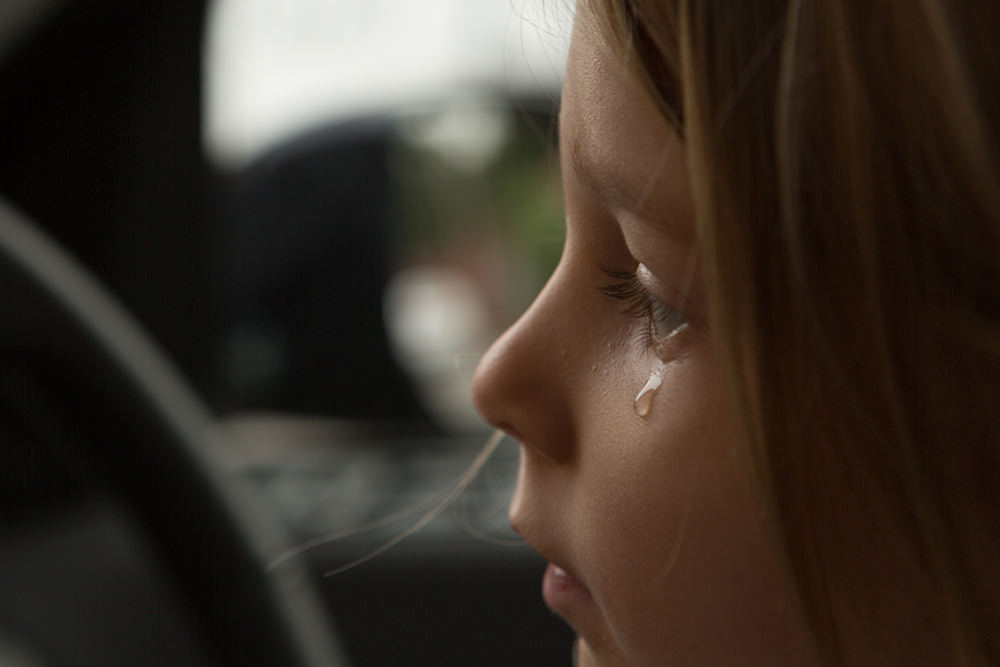
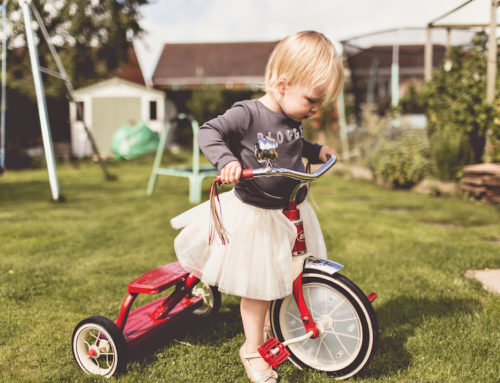
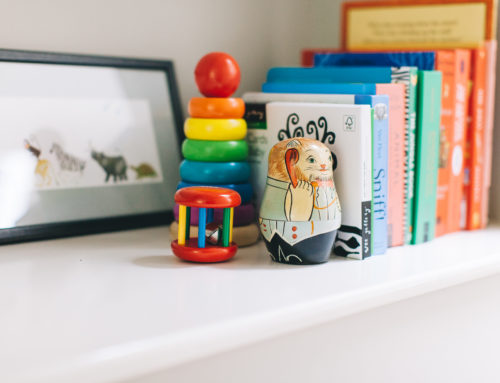
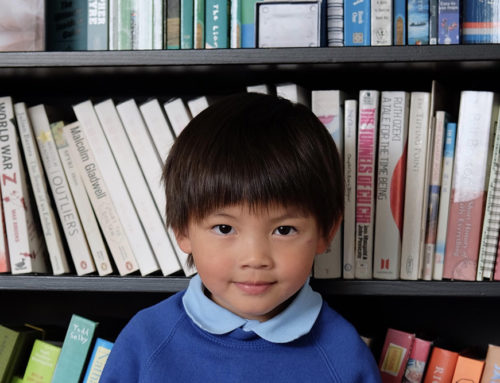


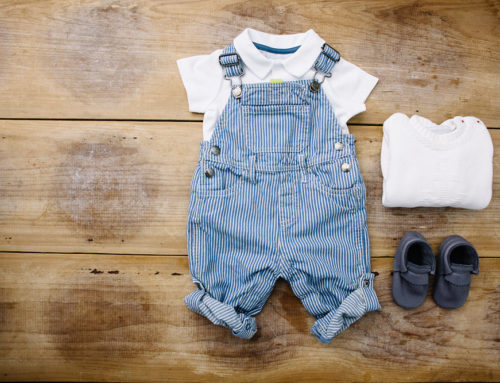
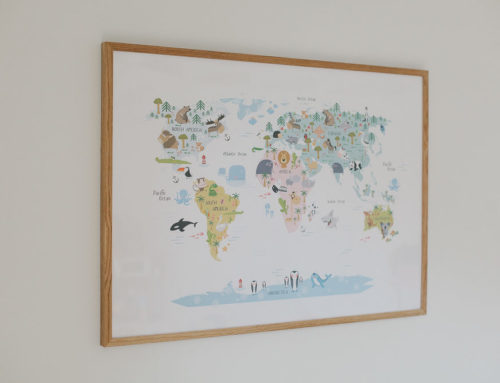
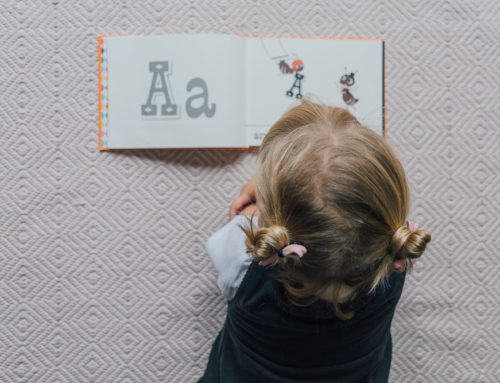
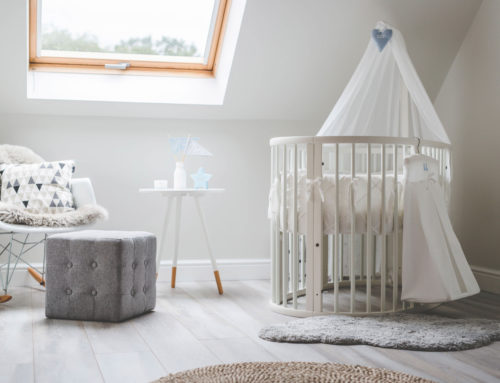
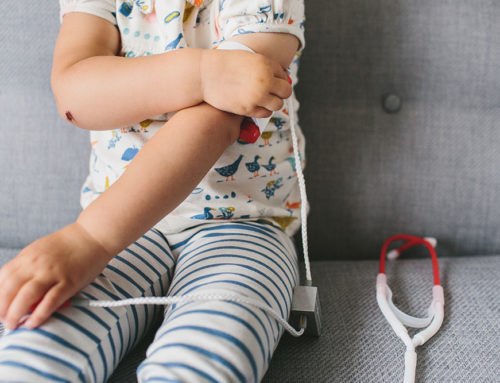
I am a teacher and I have one rule. Be kind. It covers all things that year one need to consider at their age. I am so sorry your daughter is experiencing this and wish she was in my class! I hope things get better and better every day for her.
Thanks Bex. This is a household rule for us too. I always drill Rosie on “Be Kind” and “Always Tell The Truth”
This is terrifying. I once naively thought home schooling was the preserve of hippies and weirdos with too much time in their hands. But the more I hear about the state of the education system and the damaged children (Scarlett) our society is creating, the more home schooling sounds like the only sensible option.
I desperately hope the situation improves for you and Rosie soon.
Thanks for your comments Phillipa and taking the time to read my story.
Ive posted an update but since writing the article we have met with School and some positive steps are being implemented now. Fingers crossed for resolution x
Thank you so much for sharing your story and I’m so sorry for what you and your daughter are going through. I too never thought that such young children could be so manipulative but I have witnessed this via friends children and it scares the hell out of me. They had the same situation where it was sneaky remarks, physical contact when no one is looking but still they insist they are best friends. It makes me sad that such young children think that this is what friendship should be. All you can do is continue with what you are doing. Keep happy and positive, encourage her to play with others and continually talk about what fun friends should be. You sound like you are doing everything you can and I really hope that soon you get the results you want. Big hugs xxx
Thanks Lotte. Hopefully things are on the up now that School have introduced some measures x
I’m sorry to hear what your daughter, and you as a family, are going through. My son is an August baby starting school in 2019 and this absolutely petrifies me. We live in a borough with a shortage of school places and schools seem hugely over stretched. Good luck to you and Rosie x
Thanks Anna. I’m sure your son will do just marvellously xx
I’m so sorry to hear this is happening to your daughter. You sound like you are handling it as best you can and hopefully your daughter grows and won’t remember that this happened to her. I can’t imagine how this little girl picked up these types of behaviours so young? That is so scary! Good luck to you and Rosie xx
Thanks for your kind words Helen. I’ve spent far too much time trying to analyse motives and reasons for the behaviour of the other child to no avail. It’s a shame really for her but School are putting steps in place now to help to teach her acceptable and unacceptable boundaries and to help council her through anything else she might like to address. Xx
Although I am very sorry for you, I’m also v glad to read this story because I am experiencing a nightmare boy version of this with my son. He started reception in September, another boy sought him out for friendship and was determined they would play; but he was very rough and violent with my son.
Since then he and my son are inseparable, although my son insists he is terrified of him. My son does whatever he says, which involves naughty behaviour and cheek to staff which I am mortified about. The other family asked for a play date and my son begged me to say no, which I did.
Over half term he said he would find a new Friend, but after one day of avoiding the boy, and some nasty comments as a result, my son went back to the same dynamic. I am at a loss! I feel sick dropping him off knowing he will probably get hurt and be naughty, which I fear will cement his reputation as a naughty boy in the school.
I also feel that the other child involved is just that; a child, and trying to make relationships in the way he knows how. It is really my own son I am frustrated with. Hoping to move his school too! It has caused lots of tension between my husband and I as we grapple for a solution.
You have my sympathy and I hope your daughter comes out the other end of this soon xx
Hannah I’m so sorry to read about your experience with your son. It’s so frustrating when you feel out of control of the situation. Have you discussed your concerns with his class teacher? My experience only cements that these things are best dealt with immediately. My knee jerk was to move schools last year but the more rational part of me thought “why should we have to?!” And “will this actually solve Rosie having the skills to deal with tricky situations in the future?”
I hope things get better for you guys xx
Thank you for sharing your story. It’s made me feel incredibly sad about the world we live in. My daughter starts school next year. She’s has cerebral palsy and I’m terrified of her being bullied or excluded because of it. But she’s thriving at nursery and has some lovely friends so I need to just have faith that the transition to school goes as well. Well done for how you and your husband handled the situation and I hope it’s resolved soon.
Thanks so much for your kind words Sarah. I’m sure your daughter will transition beautifully, sounds like she’s got the skills to make and maintain lovely friends and I’ll sure she’ll do the same in a school environment. Lots of praise, positivity and encouragement is my advice…which I’m certain you’ll do and do do anyway xx
Sarah thanks so much for sharing your experience, I had a lump in my throat the whole way through. You seem to have dealt with this awful situation very bravely and with consideration, I’m not sure I would be able to handle something similar as well. I hope things continue to improve for Rosie and that she begins to enjoy school x
Thanks Charlotte. Following a meeting at school yesterday I’m confident that things will begin to improve.
I’ve no idea how I’ve managed to muster bravery and consideration during this situation…I’m usually impulsive and like a lioness guarding her young with my kids. I guess the seriousness brought out my inner pragmatist. X
This has left me utterly heartbroken this morning that this is happening to your little girl. Like Charlotte said I don’t think I’d be able to handle things quite so diplomatically and I truly commend you for your strength and integrity. I really hope this situation gets resolved soon and you get the support you and your daughter need from the school. Lots and lots of love to you all xxx
Thanks Lorna for such a compassionate response. Improvements have been implemented from a strategy perspective from yesterday so hoping things are on the up xx
Gosh, I too did not think bullying started as 4 year olds, I am horrified. It sounds like you are doing everything possible and with such strength and self-control, I don’t think I could handle this sort of thing nearly so well. I am sending lots of hugs and virtual support, this must be extremely tough for your whole family to deal with, and hope this is all resolved very soon. Some excellent advice too that I will keep note of as well, thank you.
Thanks Annie, really appreciate you taking the time to read and comment. We are currently at a swimming Lesson (which she’d refused to attend last week after another incident at School) so hats great progress from a social interaction perspective xx
I’m so sorry that you and your little girl are going through this. I was wondering what the response of Scarlett’s parents has been? I would be horrified if my child was being a bully and would try to help resolve this situation as quickly as possible. You are quite right to be focussed on your child, my heart goes out to you.
Thanks for your comments Kat. The response from Scarlett’s Mum on the whole has been apologetic. She’s contacted me on and off through messages to acknowledge and apologise. Without knowing exactly what school have said to her and how it has been framed I’m not sure whether she was aware of how serious things had become until this week. In the past she had told me that Scarlet is an only child, and nearly a year older than Rosie, often surrounded by adults so perhaps this is why she was so “assertive” with Rosie. I do feel for the parents IF they have addressed this with Scarlet and she continues to misbehave…I’m sure it would be frustrating for them that they can’t control her behaviour during school time. However, I simply don’t know what and how they’ve handled this with Scarlet at home x
Hi Sarah,
Thank you for sharing your story. I hope things improve for Rosie. The beginning of your story is something I think my daughter is going through- an aggressive girl in case who she insists is her BFF even though I know my daughter is learning bad behaviour from her. Would love to hear your thoughts on if you engage with the parents of the other girl or not? And also any recommendations on books, articles on how else to help your daughter? Thanks!
Hi Ly
Thanks for your comments and apologise for the delay in response, I tapped out a long reply last night only for it to disappear 😩
In terms of parent enagagement I’d say it depends on what your exisiting relationship is like with them.
I personally made a deliberate decision to use School to mediate as I didn’t feel comfortable approaching the parents directly (I was aware of a previous child who’d been bullied by Scarlett the year before at Nursery School, and the Mums had a very very heated confrontation about it quite publically). It’s so sensitive and emotional when your own children are involved so even though her Mum seemed approachable I wanted to diffuse any potential emotion by using School as a conduit.
Tools and recourses:
– the Bully and The Shrimp book is great teaches what real freiendships are based on and how standing up to a bully helps
The Bully and the Shrimp https://www.amazon.co.uk/dp/1472351266/ref=cm_sw_r_cp_api_rkwdAb9295961
– Head to the Anti Bullying Alliance website as there are loads of tools for parents, schools and kids which I’ve found invaluable
– you’ll see a link in a previous post I’ve put on here to a “worry plaque” from the fairy door company…it has worked wonders this morning and Rosie’s actually taken it to School with her today to share with her friends
– Rosie’s teacher actually recommended a book yesterday called “Topsy and Tim Help a Friend”
Topsy and Tim: Help a Friend (Topsy & Tim) https://www.amazon.co.uk/dp/0723292590/ref=cm_sw_r_cp_api_kjwdAbYJPD76D
HI Sarah,
You’re so good for replying. I read through all the comments that readers left and your responses. Such a heated topic!
My husband spoke to the teacher this morning (I would have been too emotionally) and they will keep an eye on it, but this article really help trigger me to review her behaviours recently and realise it could be school related so thank you so much for writing this article.
Big hugs to you and Rosie!x
Thanks Ly, I really do hope things improve for you. Sending love xxx
Heartbreaking story. We are living through a very distorted lens. I am going to be totally honest and admit that i am related to the author of this article.
I still struggle to comprehend where this learned behaviour has evolved. I 100% believe that the focus must be on tackling the cause of this behaviour. The saying “if you do what you always did, you,ll get what you always got” rings true here. I totally endorse the author,s approach and the efforts being made to address the outcome of the bullying. However, steps surely need to be instigated to re-educate the bully. I don’t understand why, in these scenarios, it is the victim who is expected to modify their behaviour and become a “stronger” person, or indeed, the idea of needing to change the schooling arrangements of the victim.
When will society wake up to the fact that the root cause need to dealt with and that actions lead to consequences.
Sadly, we are only scratching the surface with this insiduous behaviour.
My hope is that the victims of bullying are always made to feel safe enough to articulate the impact this has on their lives.
I just want to say I totally agree – surely by relocating the affected child you are just proving that the bullies win because they don’t have to move. Why aren’t the bullies moved? I guess there are instances when this wouldn’t be sensible, as bullies don’t behave like that for no reason so perhaps, like disruptive children sometimes, moving them isn’t the solution either as it doesn’t address why they are acting that way in the first place. Why isn’t there more support to address the issues causing the bully’s behaviour, maybe even with counselling support or whatever is appropriate under each circumstance? I appreciate solutions cost money, and no school or council has pots of money lying around, but it just isn’t acceptable to continue either.
Thanks Annie
Yeah I absolutely support your views. It turns out that actually our school do have a pastoral role of a child family liaison support worker, so as of today she will work with both girls separately and then eventually together to counsil and coach them through this. I’m hoping it will prove to be an effective technique xx
I totally agree
I remember when you first described the hair cutting incident in a comment here. It remains so shocking to me, and your calmness and rationality is so impressive. I do not understand how a school with a presumably “zero tolerance” bullying policy can sweep so much under the rug. Totally fail to understand why they can’t just make an exception and move the classes around. Or at least get dinner ladies, everyone, on board as part of a holistic approach. Hugs to Rosie, it will get better x
Thanks Lucy. They have indeed confirmed as of yesterday that all dinner ladies, support staff and teachers are fully briefed now. They did even say that we could consider moving the classes around but we agreed that as the incidents happen during play and lunchtimes this may not be a robust solution xx
I too am shocked that this behaviour can start in one so young.
If this carries on, I would demand she is moved class, I really don’t buy the schools response to that and if they have failed in all other options they could try. I suppose the other girl may still have access at lunch or play time but hopefully she would get bored with it all.
Thanks Victoria. Yes I’m hoping that it will become boring and she will leave Rosie alone, having said that, I think something does need to be done to address her behaviours and motivations/influences because she may indeed become bored of intimidating Rosie, but who might she turn on next? Xx
This is horrendous, I’m so sorry this is happening to your daughter. Feel really emotional reading this. I think it’s amazing how you’ve handled this and I truly hope the situation improves quickly. My son starts reception next year and naively I didn’t think four year olds could intentionally act like this. I have definitely had my eyes opened and will be much more aware of his friendships now. Thank you for speaking out.
Thanks Agnes, really appreciate your response. Be aware but don’t be anxious, kids will be kids and there’s bound to be a few fallings out, but just make sure that if there are regular patterns of concern you voice them formally immediately. Xx
I think it’s important to remember Scarlet is only a child, and no doubt has very little comprehension of the hurt and upset she is causing. I imagine her parents are mortified. She may have an older sibling who is rough with her, or she may be experiencing trauma at home. Who knows what the circumstances are but I think it’s a bit unfair to judge a child who is four/five.
Also, coming from the other side, as the parent of an amazing yet extremely spirited and boisterous child who is very tall and big for her age, I live in fear of her upsetting/hurting other children. She’s an August baby and just started reception (she’s both the youngest and tallest in the year!). She loves school and is sociable and friendly and seems to have a tight-knit group of friends, but I know she can sometimes be a bit feisty and she’s very strong for her age so could be rough without meaning to (i.e. she once made a child cry when she cuddled her, as she did it quite hard). I’m a very shy, gentle person so in a way I marvel at her confidence and assertiveness but I do cringe sometimes too at her big personality. I also get told often she should run for president! We’re very strict with her and talk constantly about being kind and gentle. They are our buzz words! Her sister is the most gentle, placid kid so we don’t really know where it comes from.
Anyway, people always presume she’s older than she is, but I’d say that even though she’s very intelligent she is quite immature emotionally compared to her school friends. Perhaps Scarlet is the same? Who knows the background. But if my daughter were to upset anyone, I’d definitely want the parents to tell me asap so that I could speak to her about it and hopefully resolve the issue.
Obviously I still think that, irrespective of the motives/intentions, Scarlet’s behaviour is very wrong and also worrying, and that the parents (and school) need to take action asap. Really hope it gets sorted soon.
Hi Abi, I completely agree with your comments. I think one of the biggest difficulties with situations like this is that Rosie is instantly seen as the ‘victim’ and the ‘good’ child and Scarlett is the ‘bully’ and the ‘bad’ child but they are both 4 year olds who are struggling with social interaction. It sounds like despite talking to their daughter many times Rosie’s parents are struggling to alter her behaviour at school and it could be that Scarlett’s parents are in exactly the same situation yet Rosie’s parents are viewed as great parents and Scarlett’s parents are terrible parents. I have two daughters who seem to have extremely different personalities despite having the same upbringing and experiences which makes me think that the difference between a ‘good’ child and a ‘bad’ one could have little to do with upbringing. I think it’s important to remember that the ‘bully’ and her family need as much understanding and support as the ‘victim’ (perhaps even more).
Kat, thank you for your thoughts. I really do hope that my story doesn’t paint Scarlet to be a “bad” child, nor do I feel that her parents are “bad” parents. I absolutely wouldn’t profess to being a “great” parent and as for my daughter being a “good” child…well as a matter of fact she is a wonderful child. I understand the point you are making about societal labelling, and in no way did I intend to vilify Scarlet. I agree with you, she and her parents need some support to help to address these behaviours, and as you may have read from some of my responses this evening, School have proactively agreed to provide access for both girls separately and eventually in an integrated way to work with the child family liaison support teacher. One thing I’d like to state is that before these interactions with Scarlet, my child has never ever had any difficulty with social interaction. Maybe upon starting school It might have eventually caused some social anxiety; but there is a strong and consistent correlation that each time something detrimental has happened off the back of an incident with Scarlet, Rosie has withdrawn more and more, her confidence eroded and her personality diluted. My husband and I are doing everything we can to renovate this and rebuild her confidence, and we are delighted that we have access to a professional at School who can help us to work with Rosie to manage her anxieties. I’m teaching Rosie to draw strength from these experiences and highlight as many positives as I can. I don’t view her as a victim, I think she’s a hero for enduring such unfortunate circumstances.
Thanks for sharing your views and experiences Abi. My younger son is very similar to your daughter by the sounds of it…which is probably why I’ve been able to be quite balanced in my approach…my kids are polar opposites, so I’ve really tried to put myself in scarlets parents shoes. I really don’t know Scarlet well enough to make judgements on her character and didn’t intend for this to come across in the article, but all I can base my experiences on are the facts which are situations that have been relaid to my by my own daughter, evidenced by injury and witnessed by others. I’m no child psychologist and without being present at these incidents I cannot hand on heart say that each one of them was in no way malicious, manipulative and was just a little rough play; but cutting someone’s hair off with a knife, shoving someone over from behind, throwing large toys at another person alongside name calling, control and blackmail to me doesn’t sound like a bit of rough and tumble.
Your daughter sounds lovely, vivacious and quite honestly I’d welcome her traits of gusto in my daughter any day of the week. But she doesn’t sound like the child who I believe is intimidating mine. Xx
Thank you so much for this post. I am so sorry this has happened and is happening to you. You and your family are incredibly brave and strong. This has also hit close to home for me. My son started Montessori school at in January at 3 years old, only in the mornings so for a total of 3 hours a day. Their classes have 3-6 year olds in them. Coming from a Montessori back ground I thought this was good. It took me a long time to realise that he was being bullied. There was a boy who he referred to as his friend, that would hit and pinch and push him. He did it sneakily in class and made sure no one saw it. My son slowly started telling me. At first the reaction at the school was difficult. If they didn’t see it they didn’t believe it. Then one day a teacher saw it and addressed it immediately. The problem then became the boys parents who refused to believe it and blamed my son (3 years old) for their 7 year olds behaviour. It escalated as the end of school year came as all the older boys (who my son idolised and called his friends) started spreading lies about my son saying he stole their things. As my son was only there in the morning this was an impossibility but it didn’t stop them telling him this every day and my son coming home saying ” I didn’t take anything”. The bullys (lets call them what they are) kept on going until they stole my sons favorite dinosaur jumper. A week after they came up to me saying that my son had stolen their toys. I said that this was not true, that they could even look in his cubby with a teacher, but that funny enough, his jumper was missing and did they know where this was? The jumper miraculously appeared the day after. It has resolved as the older boys have moved on to older schools. The violent bully is in the school next to my sons and there was an incident 6 weeks in when he came over to the small school and tried to get my son and his friends to go to a dangerous place under the trees that the kids aren’t allowed to go to and my son had to defend himself with a stick to get him away. I addressed it straight away with both schools. The schools seem onboard but once again the parents of the bully do not hold him responsible so I dont see how his attitude will ever change. But your husbands wise words have helped me today, I will concentrate on my son. Thank you again, sorry for rambling on. Its such an emotional subject.
Anna, this has made me so sad reading your account of your sons early experiences at school.
All I can say is that by learning to concentrate on what I have control over (my daughter) and pouring my energy into her and attempting to break negative thought cycles and restoring positive thinking has begun to help redevelop a more positive outlook onngoing into school for her. With Rosie she is often very worried about “what if Scarlet does this again” or “what if she won’t let me play with so and so” so my priority is to work through her worries and fears and try to rationalise them and reassure her the best I can. It’s almost a bit like using a cognitive behavioural therapy frame work…maybe have a google, there might be some techniques you can arm yourself with. I really do hope that your son goes on to enjoy school and embrace play and learning xx
We have been through the same with my 5 year old son in reception year. He became really angry at home. His behaviour just switched overnight. He had told me stories about kids at school and I didn’t believe everything I heard ( i feel like a terrible mum for this part). But then I witnessed one of the boys in question punching another boys head into a brick wall. I couldn’t stay silent any longer. I went in and the teachers were helpful but it continued to the point where z’ s trousers and underpants were pulled down in the middle of the playground on 2 separate occasions(where a 5 year old gets this idea is beyond me). He started to soil himself at home. It was just awful. It took a year for his behaviour to change back and speaking to his new teachers in year 1 it doesn’t seem to be happening anymore but speaking to mum’s in the playground it is happening to other kids. This makes me so angry that the child who is doing it can’t be excluded.
I am in NO way excusing this kind of behaviour, and am so sorry it happened to your child. However, as somebody previously said, there is another little person here whose behaviour is very worrying. As an early years teacher, I have never come across a child who behaves in a negative way just for fun. There is almost always a reason or meaning behind it and usually a very vulnerable or troubled child. Simply asking for a child to be excluded cannot be the solution. Bullying is awful and so heartbreaking and the knock on effect on a child’s confidence is just not ok. But compassion must be key. Hopefully your child’s school is proactive and takes your very valid concerns seriously.
Hannah, School have this week responded really positively and they are working through both sides of the situation with both children. X
I’m so pleased to hear that!
Cherish, I’m really emotional reading your account of what you’ve been through with your son. Humiliation leading to anxiety related incontience is actually something that was centre stage in my daughters story, but I actually left it out as this was the part that broke my heart the most and I couldn’t bring myself to write about it.
I guess like others have said in comments here, exclusion isn’t really a solution because the intimidator may likely decide to continue this unacceptable pattern of behaviour with other children. There needs to be more resource and support in schools to help council these children through this, the root of the problem needs to be addressed.
I really do hope that your son continues to have a better experience in year 1, and hopefully by the time he’s older he’ll forget all about those horrid incidents. If the child doing the pants pulling down continues with other children i sincerely hope that the school are made aware by respective patents and they identify a pattern and work through this with all parties involved. Xx
Please keep us updated with how you get on! X
I was slightly nervous to read this having literally just registered my daughter for Primary 1 next year. My daughter is quite shy and sensitive and would be easily led by a “Scarlett” too.
I can’t imagine how hurtful this must be for you, especially at such a young age but I agree with the others that you are dealing with this in a very diplomatic manner and I would hope that I could do the same in this situation. Not sure though! I can already feel the rage creeping in just reading this.
I have no idea where schools draw the line but I do feel that you are right to take this further with the school and demand your expectations. I would be very persistent with them. It will get better!
My heart aches for Rosie and I hope this is all over soon!
Thanks so much sarah. Your daughter may surprise you and absolutely flourish at school. There are lots of big personalities in Rosie’s class and some of the more assertive children have had a very positive impact on some of the shyer characters. Xx
Hi all,
Initially I didn’t intend to leave a comment here following my article – it is a sensitive topic and it has been anonymised for obvious reasons. However, having read the responses and feedback above I’m compelled to respond to such a wonderful community of parents. Your words have offered me reassurance, recognition and hope. Thank you.
I’d also like to add that for those of you reading that have young children at or starting school please please don’t let this article provoke unnecessary worry. Im pretty confident that in the vast majority of classrooms and schools around the country, children are getting along just fine. I think the situation I describe in my story is very unusual. I decided to share it to create awareness during anti-bullying week and actually I have found it to be very cathartic.
Since writing the article last week, there was another physical incident at school which I immediately too to the Head. It has been dealt with with the utmost seriousness and I met with Rosie’s class teacher, the Dept Head and the Head yesterday to discuss my concerns and a strategy moving forward.
It appears that until I began to write formal letters to school (this school year), nothing else was logged, so none of the Senior Management Team were aware. It was deemed that her Reception class teacher was handling things at a classroom level and so the behavioural process/framework wasn’t employed. In retrospect, I should have immediately written a letter to school FAO: the Head teacher when the hair cutting situation happened. I guess at the time I was new to school and didn’t know the ropes – i’d assumed Rosie’s teacher was my first port of call and I didn’t really want to undermine her by going over her head to a more senior member of staff. So – that is a lesson learnt.
Looking at the current situation, the process has been followed and steps are int he process of being put in place to resolve this.
Whilst school were unable to discuss Scarlett’s specific situation with me, they were able to reassure me that her parents have been made aware, she will be on an Individual Behavioural Plan and this will be monitored daily, with a follow up meeting for me and my husband next month. Also ALL school staff are aware of the situation including lunchtime supervision and Teaching Assistants so play time and lunchtimes will be monitored more closely.
For those that are are interested, our school use a positive reinforcement model for behavioural changes. Scarlett’s behaviour will be monitored and she will be praised and encouraged for good behaviour and rewarded with stickers/helping the teacher etc.
Another proactive step that school have taken (and we are lucky enough to have access to a child and family liaison worker) is to work with the girls individually in a supervised play based environment once a week to help council Scarlett through any deeper issues she may be experiencing and help Rosie with confidence building and speaking up for herself.
I’d like to respond to some of the questions that have been posed specifically too, so I shall do later on after the school run!
One last thing to add – Rosie has a fairy door in her bedroom which are quite popular with girls her age (and boys – her little brother loves it – “knock knock fairies where are yooouuu?”). The Fairy Door Company sell this product an Interactive Worry Plaque – the child outs their hand on the plaque and it glows red to show the fairy is listening to their worry. Then it glows green to show that the fairies have taken the worry away. Bit of a modern tech version of the worry dolls (does anyone remember those teeny dolls you used to get int he 90’s?!)
https://eu.theirishfairydoorcompany.com/collections/new-arrivals/products/interactive-worry-plaque
Its £25 which is pricey but if it works as a tool to manage her anxiety I’m happily investing. Anyway, it arrived today and i have wrapped it up and left it by the fairy door as a gift from the fairy to help take her worries away.
xxx
I am so sorry this has happened to you. I’m in Scotland and I know for a fact I would never live in England with the schooling system the way it is never mind how the NHS is run. It’s disgraceful. No room for one child except in the next county- ridiculous! Government should be ashamed of themselves.
As someone who also works in child mental health I fear for Scarlett and why she is behaving in this way and interested in her family dynamic.
Hope it is resolved soon.
Thanks Jill. Hopefully Scarlett will now receive the support she needs to couch her through this via the child family support liaison worker. Xx
Thank you so much for the update. I commented above and then tonight my son came home and told me one of the boys had punched another one in the face on purpose. They are four……
I found this post really helpful to focus on what I want my son to do in this situation. I will also discuss it with his class teacher next time I see her.
Good luck and well done for being a super mummy.
Thanks Kat, if this story brings an ounce of help to anyone, I feel that it was more than worthwhile sharing my experiences. Definitely check out the Anti Bullying Alliance website, there’s loads of tools and resources there to help educate and guide both parents and children on what to do if they or someone else is being bullied.
https://www.anti-bullyingalliance.org.uk/tools-information